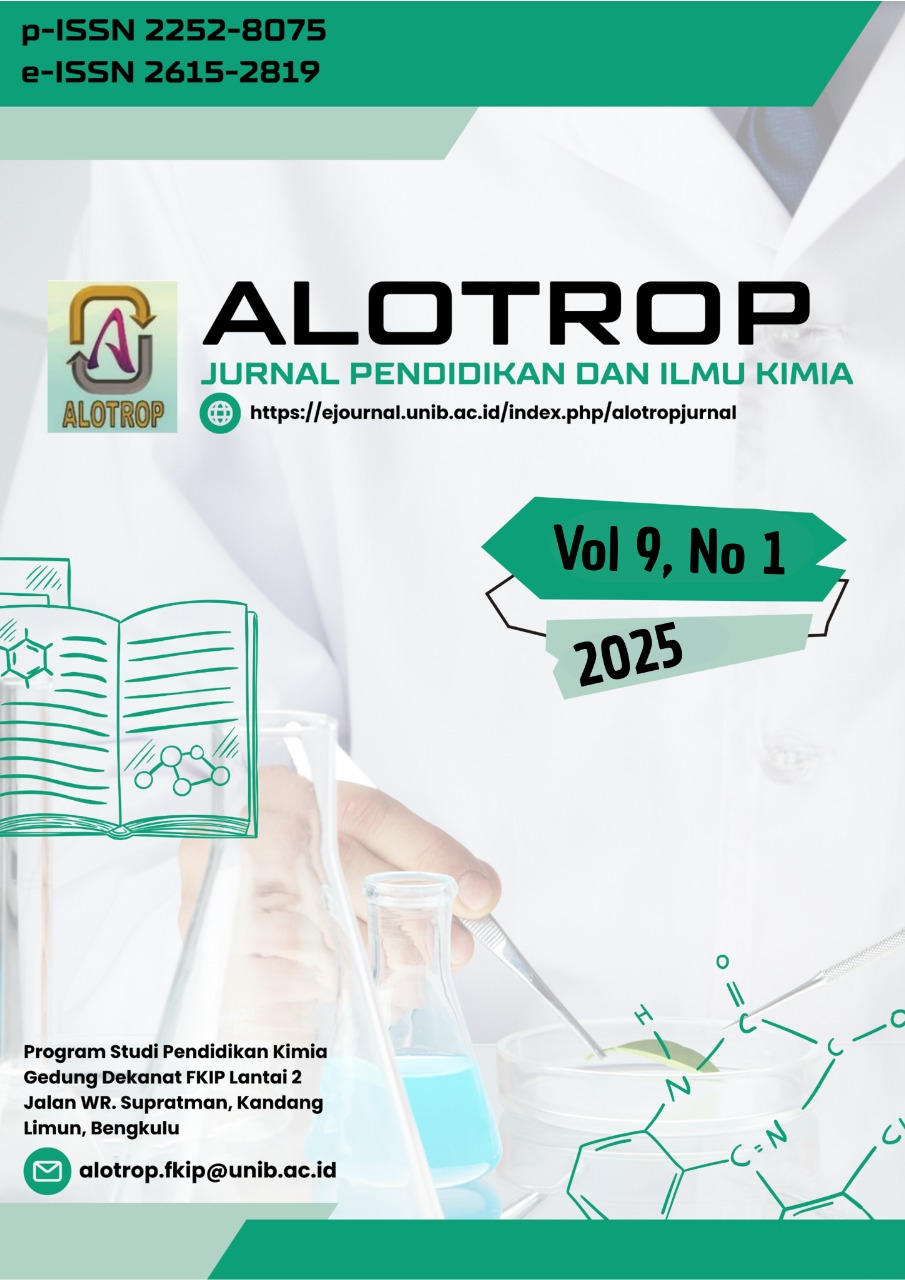Main Article Content
Abstract
[EXTRACT OF “KAIK-KAIK ROOT” STEM (Uncaria Cordata Lour.) Merr AS AN ANTIDIABETES IN ALLOXAN-INDUCED MICE] This research aims to determine the effect of giving kaik-kaik root stem extract (Uncaria cordata Lour. Merr) on the blood sugar levels of mice (Mus musculus) induced by alloxan. This reseacrh began with a phytochemical test conducted to determine the secondary metabolite compounds contained in the root stem of kaik-kaik (Uncaria cordata Lour. Merr). Extraction is done by maceration method. Antidiabetic activity test was carried out on male mice induced by alloxan. The results of the phytochemical test showed that the stem extract of Uncaria cordata contained alkaloids, flavonoids, tannins, saponins and terpenoids. The results of the antidiabetic activity test showed that the Uncaria cordata stem extract was able to reduce blood glucose levels in alloxan-induced mice with the optimal dose of Uncaria cordata stem extract at a dose of 0.043 g/kgBB. Based on the results of this study, it can be concluded that the stem of Uncaria cordata has antidiabetic activity.
Keywords: Antidiabetic, Kaik-Kaik Root Stem, Uncaria cordata Lour. Merr, Alloxan
Article Details
Copyright (c) 2025 Kirent Arikhsa Putri, Nurhamidah, Agus Sundaryono

This work is licensed under a Creative Commons Attribution-ShareAlike 4.0 International License.
Authors who publish with this journal agree with the following terms:
- Authors retain copyright and grant the journal right of first publication with the work simultaneously licensed under a Creative Commons Attribution License that allows others to share the work with an acknowledgment of the work's authorship and initial publication in this journal.
- Authors are able to enter into separate, additional contractual arrangements for the non-exclusive distribution of the journal's published version of the work (e.g., post it to an institutional repository or publish it in a book), with an acknowledgment of its initial publication in this journal.
- Authors are permitted and encouraged to post their work online (e.g., in institutional repositories or on their website) prior to and during the submission process, as it can lead to productive exchanges, as well as earlier and greater citation of published work (See The Effect of Open Access).
- This work is licensed under a Creative Commons Attribution-ShareAlike 4.0 International License.
